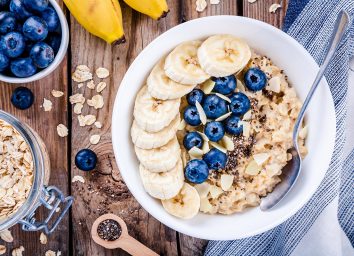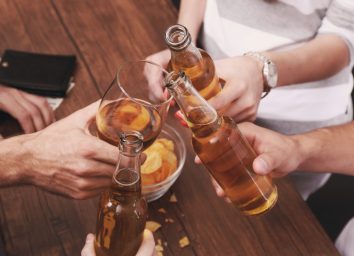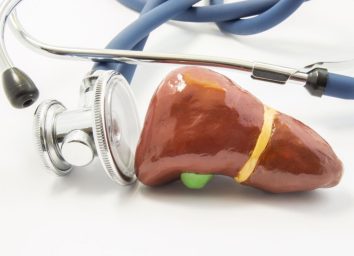5 Best Drinking Habits To Reduce Liver Fat, Say Dietitians

Your liver has over 500 functions to keep you alive and healthy, so it deserves your care and attention. While the liver always contains a small amount of fat, certain lifestyle choices can lead to a buildup of too much liver fat, which can lead to possible liver damage or other issues.
According to Johns Hopkins, you can have excess fat in your liver but it doesn't necessarily mean there's liver damage. However, excess liver fat over time can lead to inflammation and cell damage, which can be very severe.
So what exactly causes liver fat? Things like a high-fat diet, type 2 diabetes, high cholesterol, and heavy drinking can all cause too much liver fat. To learn more about preventing this, we talked with a few dietitians about their advice on the best drinking habits to reduce liver fat.
Read on, and for more healthy drinking tips check out The 9 Worst Drinking Habits For Your Body.
Limit drinks with added sugars.
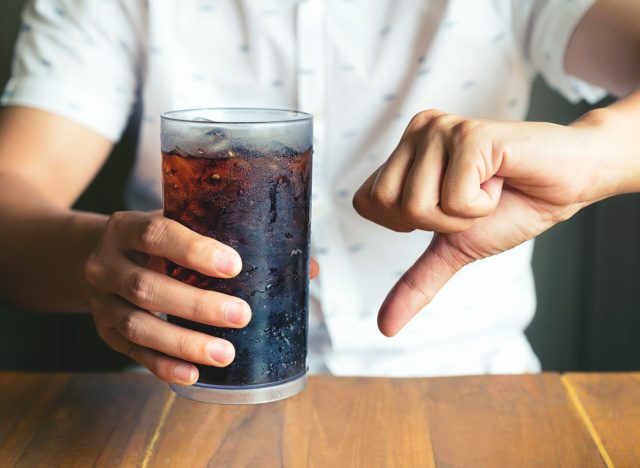
"Consuming too much sugar may lead to your liver producing more fat. Reading the nutrition label can help people navigate whether a drink has added sugars or not," says Lauren Manaker, MS, RDN, author of The First Time Mom's Pregnancy Cookbook and Fueling Male Fertility.
Not only can too much added sugar lead to more liver fat or liver damage over time, but studies are finding it can impact your healing, too. One study found that diets higher in added sugar were known to slow the recovery process of people who already had liver damage, especially from non-alcoholic fatty liver disease.
Limit your alcohol intake.

"Drinking too much alcohol can also result in fat build-up in the liver. While an occasional drink appears to be ok, excessive drinking should be avoided," says Manaker.
When looking at the two types of fatty liver disease, it's expected that heavy drinking would be one of the leading causes of alcoholic fatty liver disease. But studies have found that drinking heavily can also impact your chances of non-alcoholic fatty liver disease as well.
Add broccoli to your smoothies.
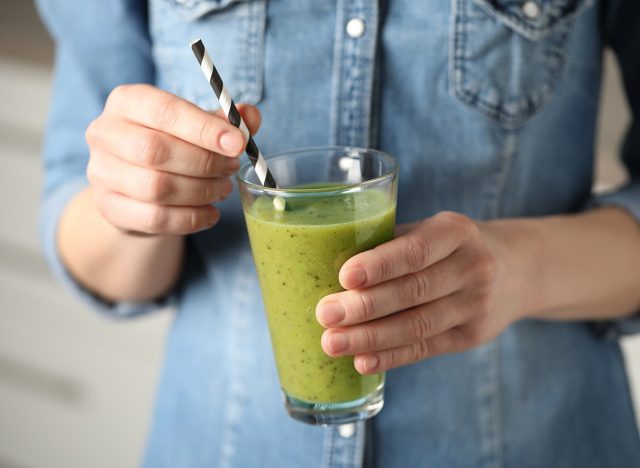
Protecting your liver doesn't only have to be about limiting certain drinks. It can also be about incorporating certain healthy foods and beverages to your daily diet. And one of the ways you can do this is by making a smoothie with liver-healthy ingredients, like broccoli!
"Broccoli contains a compound called indole that may help reduce liver fat. Adding frozen riced broccoli to smoothies can be one simple way to boost your intake of this cruciferous veggie," says Manaker.
Avoid too many energy drinks.
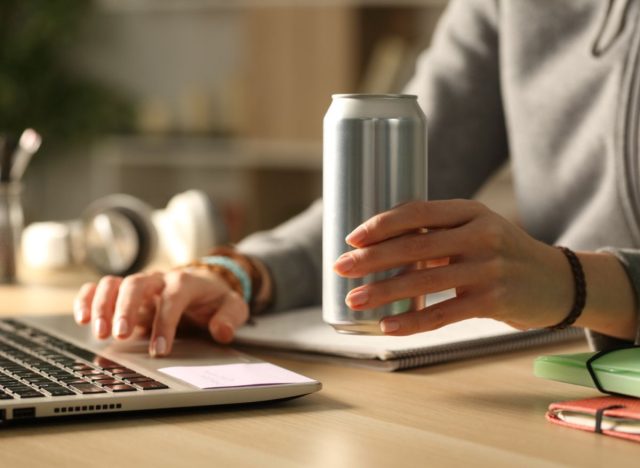
As we mentioned earlier, too much added sugar can impact your liver fat levels over time. And one of the sneaky ways people overdo it on drinking their sugar calories is with energy drinks.
"One drinking habit that can contribute to nonalcoholic fatty liver disease (NAFLD) is the overconsumption of energy drinks. People often drink energy drinks for the boost it gives them, but they don't always realize how much added sugar they contain. The leading brands of energy drinks can have about 27-28 grams of sugar per can, so a healthier option would be to choose lower-sugar varieties or to drink unsweetened or lightly-sweetened coffee or tea for your caffeine boost," says Stephanie Wells, MS, RD.
Skip out on the juice cleanse.
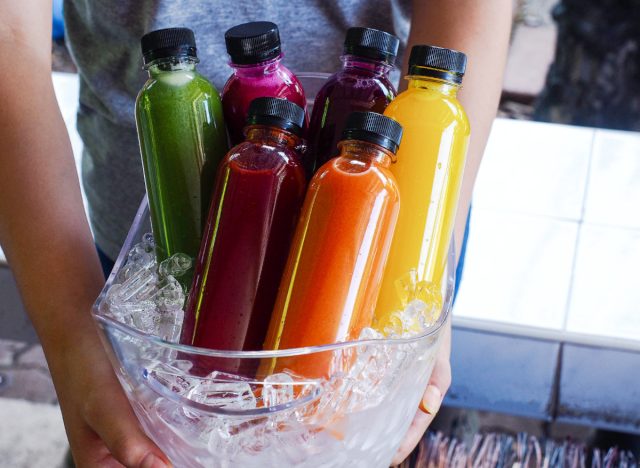
Fruit juices can also be full of sugars, even if the sugars are natural. While a juice cleanse may not have the issue of providing too much "added" sugar, it can still provide a heavy dose of sugars without any fiber or protein to help slow their digestion.
"Juice cleanses, especially fruit-heavy ones, are majority fructose. When too much fructose overwhelms the liver, the liver converts it to fat. Consuming excessive amounts of fructose can lead to the development of nonalcoholic fatty liver disease," says Whitney Stuart, MS, RDN, CDCES, a Dietitian and Diabetes Educator for Whitness Nutrition. Because juices don't use the skin of the fruit—where much of its fiber is—Stuart says it's easy for your blood sugar to spike while on a juice cleanse, which may "promote insulin resistance."

